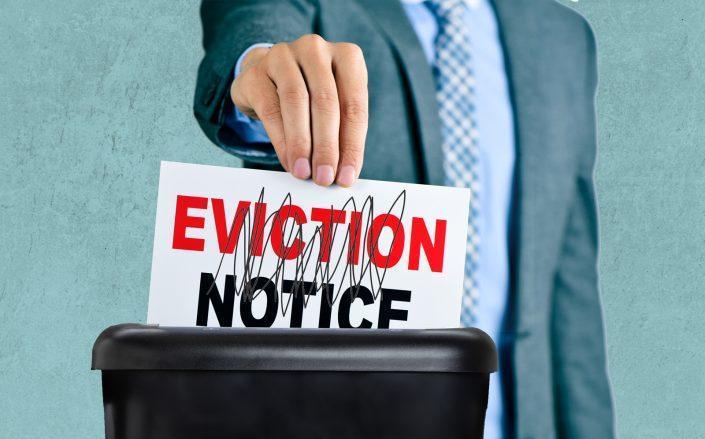Landlord repossessions across England and Wales have rocketed in the past year, ahead of the Renters’ Rights Bill becoming law and scrapping Section 21 ‘no-fault’ evictions.
An analysis by letting agency acquisition firm Dwelly shows a 6.8% national increase in repossessions compared to the previous year, while some towns recorded far sharper rises.
Thurrock leads the way with a dramatic 2,540% jump, followed by Basildon at 889% and Castle Point at 183%.
Welwyn Hatfield (165%) and Horsham (150%) also featured among the steepest local rise.
The firm’s Sam Humphreys said “the abolition of Section 21 is a cornerstone of the incoming Renters’ Rights Bill, but it risks removing a vital safeguard for landlords and the sharp rise in repossessions is a clear sign that landlords are already acting to protect themselves in advance of these changes. It’s important to understand this isn’t about landlords leaving the market, or evicting tenants for the sake of it, but about them seeking to retain control of their assets whilst they can do so via current processes.”
The private rented sector is essential to housing supply and if the Bill makes it harder for landlords to operate, it could backfire by further reducing availability for tenants at a time when demand has never been higher.”
At a regional level, the East of England reported the biggest upturn at 22.8% while London, which logged the highest overall total of 7,953 cases, recorded a 19.5% rise.
Landlord repossessions in the West Midlands climbed 13.4%.
However, smaller rises were seen in the North East, East Midlands, North West and Yorkshire and the Humber.
Only three regions went against the trend with Wales posting a fall of 33.8%, the South East dropped 12.3% and the South West slipped by 3.9%.
According to Dwelly, the figures reflect a growing desire by landlords to take decisive steps before the law shifts.
A Third of Landlords head for the exit
A survey has found that 39% of landlords are preparing to quit the private rented sector as the Renters’ Rights Bill reshaping of tenant protections raises concerns about the future of letting.
The findings from Simply Business show that the landlords are considering selling within the next year.
Along with the Renters’ Rights Bill, landlords also point to tighter EPC regulations and Making Tax Digital for their decision to quit.
The survey of more than 1,000 landlords found that a quarter (26%) view the Bill as their biggest worry, 39% still consider property letting worthwhile, while 26% remain uncertain.
The firm’s UK chief executive, Julie Fisher, said ”there’s a sense of trepidation amongst the nation’s landlords. The long-awaited Renters’ Rights Bill is set to drastically change the rental market in the next 12 months. But many landlords (76%) fear the new regulations won’t increase standards in the market the way the government hopes.”
Insuring more than 300,000 landlords allows us to gain first-hand insight into the integral role they play in the housing market. What’s clear is their desire to continue providing quality housing while maintaining viable businesses. With the biggest changes to tenancy law in a generation almost here, alongside several other regulation changes, landlords are asking for clarity.”
One of the most controversial changes under the Bill is the abolition of Section 21 ‘no-fault’ evictions which is the main concern for 38% of landlords.
However, 56% are concerned about lengthier, costlier eviction processes even though research shows that landlords tend to maintain stable tenancies.
Simply Business also found that 71% have never used a Section 21 notice to evict a tenant, while 97% have housed the same tenants for more than a year.
A third (31%) have provided homes for the same tenants for more than five years.
The new rules for restricting rent rises appear to cause fewer worries with 8% listing it as a priority issue, with many landlords saying they do not intend to pass on extra costs.
More than half have not raised rents in the past year, while two thirds do not expect to change their approach once the new limits come into force.
The upcoming law will also impose tougher energy performance standards and by 2030, rented homes must reach an EPC rating of C, up from the current minimum of E.
Landlords could face costs of up to £9 billion collectively, with 13% expecting to spend more than £10,000.
However, 21% remain unsure how to meet the requirements.
In addition to housing reforms, the government’s Making Tax Digital scheme will require quarterly submissions from April 2026 for those earning more than £50,000.
The majority (68%) of landlords say they are unprepared, with many expecting higher accountancy fees and more complex reporting.

